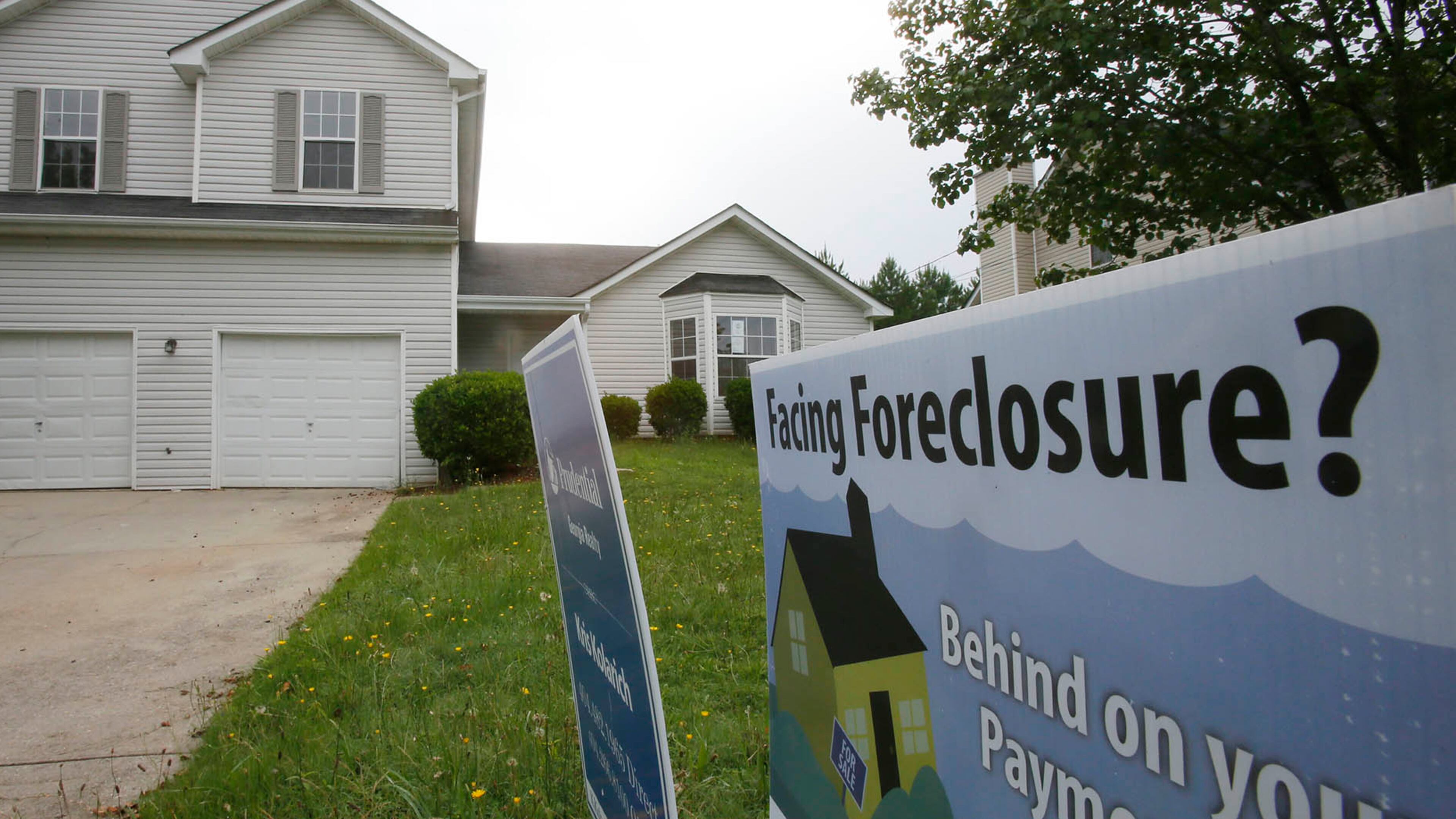Tumbling foreclosures boost home prices

WHY IT MATTERS
Foreclosures can hurt home values, which are important even to people who aren’t likely to sell or buy anytime soon. Home values contribute to the so-called “wealth effect” that helps drive the broader economy by making people more confident about purchases of all types.
Visit our premium website to read more on foreclosures and metro Atlanta housing trends. It’s the only place you will find this content.
Foreclosure notices in metro Atlanta have been falling for the past three years.
Year…..Number of foreclosure notices filed Jan.-March…..Percent change from prior year
2002…..7,005…..up 51.4 percent
2003…..8,420…..up 20.2 percent
2004…..9,918…..up 17.8 percent
2005…..9,767…..down 1.5 percent
2006…..11,287…..up 15.6 percent
2007…..13,172…..up 16.7 percent
2008…..18,654…..up 41.6 percent
2009…..26,264…..up 40.8 percent
2010…..31,067…..up 18.3 percent
2011…..31,741…..up 2.2 percent
2012…..25,169…..down 20.7 percent
2013…..14,363…..down 42.9 percent
2014…..7,099…..down 50.6 percent
Metro Atlanta foreclosure notices are down 50 percent for the first three months of 2014, continuing a trend that bodes well for home values but not so well for shoppers searching for houses.
The drop-off in notices is a reversal of the wave that washed over the region after the housing bust and promises to keep the inventory of for-sale homes low going into the popular spring selling season.
At the same time, fewer foreclosures and tight supply have buoyed prices.
The huge decline for March — a 47.3 percent dip from the year before — puts foreclosure notices at a level unseen since fall 2002.
“Some of the reason for the fall in foreclosures is because people just aren’t getting into trouble as quickly,” said Carl Hudson, director of the Center for Real Estate at the Federal Reserve Bank of Atlanta. “I’m not surprised it’s a low number.”
Through March, there were 7,099 foreclosure notices in a 13-county metro Atlanta region so far in 2014, according to Equity Depot, which compiles the numbers. That’s a 50.6 percent drop from the first three months of 2013.
And it’s a 77.6 percent drop from the first-quarter peak in 2011, when there were 31,741 foreclosure notices filed in the first three months.
Hudson said fewer people are becoming delinquent on home loans. That’s in part because the economy has improved and more people are able to pay their mortgages. It’s also because credit availability has tightened, and riskier borrowers — those most likely to lose their homes to foreclosure — have been unable to get loans.
“It’s not just a couple ZIP codes driving Atlanta’s numbers,” he said. “It’s broad based.”
But Barry Bramlett, whose firm compiles the numbers, said delinquency rates are still higher than foreclosure notices indicate they should be. He is concerned that foreclosure notices are no longer a strong indicator of what’s happening in the housing market.
“The numbers are down. Will that change? At some point,” Bramlett said. “We’re at (foreclosure) levels now that match a booming real estate market. There’s no way.”
Realtors, ever-optimistic, expect a strong spring selling season. Prices rose more than 18 percent in 2013, according to the S&P Case-Shiller Home Price Index. Last year, sellers often received multiple offers, above the asking price, within days of listing. Realtors say they expect much the same this year.
“It looks wonderful, it looks good,” said Ennis Antoine, president-elect of the Atlanta Board of Realtors. “The key here for us is the market is improving.”
Eugene James, Atlanta regional director of the housing information company Metrostudy, said the rate of improvement on the foreclosure front is “amazing.” It is so low, in fact, that he thinks there is room for foreclosure activity to pick up, and still be within normal levels.
“They’ll trickle up over the years,” he said. “If they change upwards, it’s not going to be by a significant amount. Most people in trouble have already given their house back.”
Some of the 2014 drop in foreclosure notices comes from a shift toward short sales or other methods that take homes out of the foreclosure process, James said, but much of it is related to tighter lending standards.
Even if banks are selling loans instead of foreclosing themselves, James said, the buyers would need to foreclose if a homeowner was not making payments. He expects prices to continue to rise this year.
“There’s less distress in the market. There are fewer people in trouble,” James said. “It tells me the overall housing market — it’s already improving, and it’s going to get a whole lot better.”



